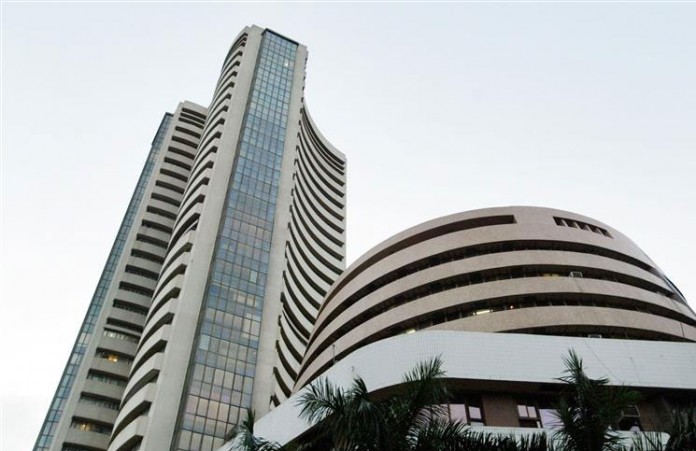In this blog post, Manisha Nayak,a Fourth-Year Student at Government Law College, Mumbai and pursuing a Diploma in Entrepreneurship Administration and Business Laws from NUJS, Kolkata, describes and analyses the business and organisational structure of the Bombay Stock Exchange.
The article deals with the business and organisational structure of Bombay Stock Exchange. The article provides an insight into the organisational setup whereby focussing on the day today working, practices and process dealing with the structural aspect of Bombay Stock Exchange. Further, the article provides a reference to business and organisational structure affecting the industry practice and market trends.
Introduction
Bombay Stock Exchange (“BSE”) was established in 1875[1] which have facilitated the development of the Indian economy by providing a platform to Companies for raising capital. Companies through BSE can raise capital by trading in the equity market, derivatives, debts, etc. There are approx. 5500 companies listed on BSE and with the total market capitalization of $ 1.64 trillion.[2] Apart from the aforementioned services, BSE also facilitates by providing depository and education services, the depository services provided by BSE, i.e., via Central Depository Services Ltd. is one of the most respected and trusted in the industry. Also, BSE is ranked among the top 10 of the stock exchanges worldwide.
Organisational Structure of Bombay Stock Exchange
The day to day was working, and operations of BSE is managed by the Board of Directors consisting of a Chairman, a Managing Director, Public Interest Directors and Shareholder Directors. The Board jointly formulated the policies of BSE and takes a decision relating to the trading of securities, i.e., equity, derivatives, etc. affecting the trading of capital markets in India via BSE. Mr Sudhakar Rao is currently serving as the Chairman of the Board of Directors, BSE.[3]
The board members are elected or appointed members who conferred with the powers, duties and responsibilities. Further, the management of BSE which oversee the working consists of a Managing Director and Chief Executive Officer, a Chief Business Officer, a Chief Regulatory Officer, a Chief Financial Officer, a Chief Information Officer and a Chief of Business Operations.The managing director of the management of BSE acts as the administrative head who oversee the working of all departments of BSE and all the requisite officers appointed are accountable to him. Further, the managing director being in the hierarchical head in the management is also responsible for delegation of work to other officers and is one of the key managerial personnel responsible for taking major and important decisions affecting the working of BSE. Though the chief business officer is responsible for the administrative, financial and current operating business of BSE, the chief regulatory officer head the department which is responsible for the secretarial operations whereby dealing with the regulatory compliances of BSE, the chief financial officer is responsible for the day to day financial operations of BSE, the chief information officer appointed to cater and facilitate the information to the investors, industry practitioners, academicians, etc.
Business Structure of Bombay Stock Exchange
The Bombay Stock Exchange is a securities ecosystem which provides a wide range of services starting from a trading platform to depository services, education, risk management, etc. BSE conducts its business in alliance with the leading global exchanges such as the Deutsche Borse and Singapore Exchange. Following are the business carried on by BSE and its subsidiaries, and equity stake of BSE in other entities:
- The BSE exchange provides trading services to entities dealing ion equities, equity derivatives, currency derivatives, interest rate derivatives, mutual funds, a platform for small, medium enterprises, institutional trading platform, corporate debt, listing, foreign institutional investment auction services, etc.[4]

- BSE Investments Ltd. provides strategic investment related services.
- Indian Clearing Corporation Limited which is a subsidiary of BSE carries out the functions of the clearing, settlement, collateral management and risk management for various segments of BSE.[5]
- Central Depository Services Indian Limited who is a Depository Participant (“DP”) and is promoted by BSE carries or facilitates in holding of securities in the electronic form.[6] The investor investing in the same can open a dematerialised account (“demat account”) whereby the investor can avail facilities of CDSL who being a DP acts as an agent facilitating the depositary services.
- BSE Institute Limited is a subsidiary of BSE which carries out the function of imparting and facilitating the education relating to the primary market, secondary ma
 rket, transactions, etc. through specially designed courses for students, practitioners, academicians, etc. providing them with an insight into the current industry practice and market trends in the capital markets in India.
rket, transactions, etc. through specially designed courses for students, practitioners, academicians, etc. providing them with an insight into the current industry practice and market trends in the capital markets in India. - Other services provided by the subsidiaries or wings of BSE involve the services relating to the marketplace technology providing the Information Technology related services, Asia Index Private Limited which is 50% Joint Venture (“JV”) with Standard & Poor Dow Jones Indices (“SPDJI”) carrying out the index business, the BSE corporate social responsibility (“CSR”) Integrated Foundation carrying out CSR activities and BSE Sammaan CSR Limited.
Other Committees of Bombay Stock Exchange
In compliance with the provisions of the Companies Act 2013 and under the SEBI (Listing Obligations and Disclosure Requirements) (“LODR”), Regulation 2015 as applicable mandates the constitution of the following committees:
- Audit Committee[7]; BSE has appointed an audit committee consisting of four public interest directors and a shareholder director.
- Stakeholder relationship/Share allotment committee[8]; BSE has appointed a stakeholders relationship committee consisting of Managing Director & Chief Executive Officer, a Public Interest Director and two Shareholder Directors.

- Nomination and Remuneration Committee[9]; BSE has appointed a Nomination and Remuneration Committee consisting of three Public Interest Directors and two Shareholder Directors.
- Corporate Social Responsibility Committee[10]; BSE has appointed a CSR Committee consisting of three Public Interest Directors and a Shareholder Director.
- Public Interest Directors Committee[11]; BSE has appointed a Public Interest Directors Committee consisting of six Public Interest Directors.
References:
[1] Bombay Stock Exchange, “About BSE: Introduction”, BSE Ltd., available at http://www.bseindia.com/static/about/introduction.aspx?expandable=0.
[2] Ibid.
[3] Bombay Stock Exchange, “About BSE: Corporate Structure- Board of Directors”, BSE Ltd., available at http://www.bseindia.com/static/about/boardofdirectors.aspx?expandable=1#.
[4] Bombay Stock Exchange, “About BSE: Media / Corp. Comm – BSE Update”, BSE India Ltd., available at http://www.bseindia.com/downloads1/BSE_Update_August_2016.pdf.
[5] Indian Clearing Corporation Limited, “About us: Company Profile”, ICCL Ltd., available at http://www.icclindia.com/static/about/companyprofile.aspx#clearing.
[6] Central Depository Services India Limited, “About: Introduction”, CDSIL Ltd, available at https://www.cdslindia.com/aboutcdsl/introduction.html.
[7] Section 177 of Companies Act, 2013, Rule 6 & 7 of Companies (Meetings of Board and its Powers) Rules,2014 r/w Regulation 18 of SEBI LODR Regulations 2015.
[8] Section 178 of Companies Act, 2013.
[9] Regulation 19 of SEBI (Listing Obligations and Disclosure Requirements) Regulation, 2015.
[10] Section 135 of Companies Act, 2013.
[11] Companies Act 2013, Securities Contracts (Regulation) (Stock Exchanges and Clearing Corporations) Regulations 2012 r/w SEBI circular dated 13.12.2012 on “Procedural norms on Recognitions, Ownership and Governance for Stock Exchanges and Clearing Corporations”.
 Serato DJ Crack 2025Serato DJ PRO Crack
Serato DJ Crack 2025Serato DJ PRO Crack










 Allow notifications
Allow notifications


